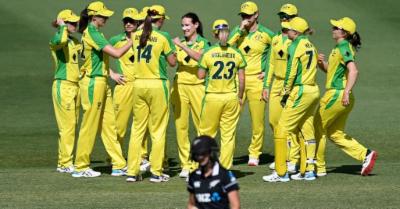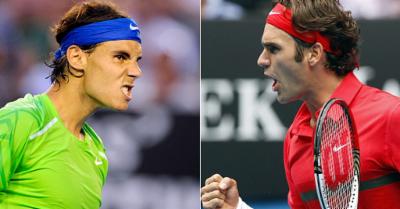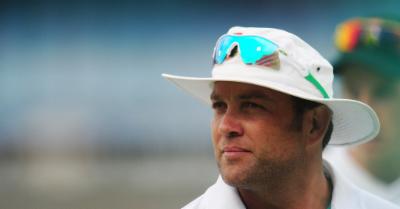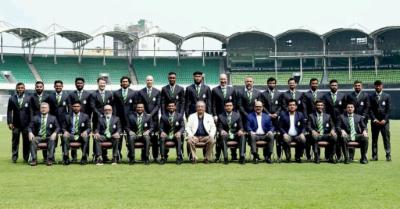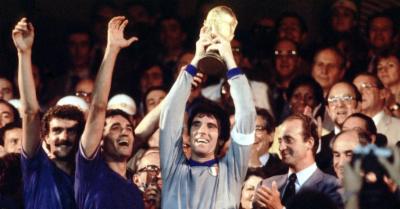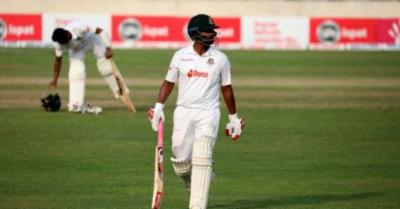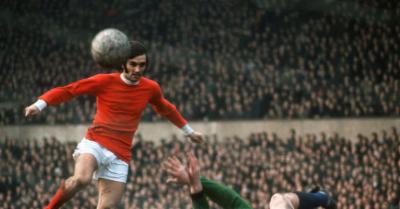O Captain! Our Captain!
পোস্টটি ১৭১৫ বার পঠিত হয়েছে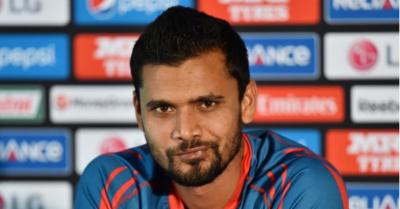
Sir Donald George Bradman played arguably the most important innings of his career in this ground, the Melbourne Cricket Ground. Whispers were floating around whether the two defeats in 1936-37 Ashes has doomed Sir Bradman’s role as a captain of the once mighty Australian side. Along came Melbourne- and he scored a blistering 270- as a number seven- in the second innings. For the first time in cricketing history, a team won a series 3-2, bouncing back from a humiliating 2-0. Since then, this ground has had a special place in Sir Don’s heart. You can see him lying down in an easy chair in the VIP corner whenever there is a game in MCG- if you have the eyes.
‘Watching the game’ may be a little bit exaggeration for this very moment- as Sir Don’s eyes are glued to the fast bowler taking his run up. You know, there are certain advantages of the afterlife- being omniscient is one of those. The bowler is trying his best to hide the pain. “Try all you can, son, you can’t hide that from me”- whispers Sir Don.
It was a full length delivery. The batsman glanced the ball to fine leg, and started running. The bowler’s eyes followed the ball travelling fast to the hurtling square leg fielder, and his left hand followed the excruciating pain he felt at his left knee right after the delivery. It was an easy single. The roar from the gallery could have heard from across the Indian Ocean- the poster boy of the batting team is now on strike. 9 required from 5- with three wickets in hand- must be a walk in the park in an autumn afternoon breeze.
The bowler tried hard to leave the million ideas going through his mind- and concentrate on the batter. Batter- who has already posted a mammoth 142 out of 121 deliveries, has a beam of confidence glimmering on his face. His last 41 came off of just 15 deliveries- and thus, this single might just have sealed the fate of this game.
The bowler turns around- starts his walk back to the bowling marker. The searing pain in the kneecaps has made these 15 steps a lot harder than it seems. He stops for a moment, and bows down to adjust the protection the physio put on the left knee. The pain suddenly touches the sky- he tries to walk it off- but the limp has already settled in. The fielder at the cover threw him the ball. He grabs it. His tiny white weapon of destruction.
The next delivery- a good length one- takes down the last defense the bowler had against the living pain. He groans a little- and sees the ball chipped over the extra cover by the batter with mighty elegance. The mid-off fielder runs a good 20 meters before pulling of a spectacular save, restraining the batsmen for a couple. The batsmen seemed relaxed- 7 out of 4 is not a big deal- not even in a field with a straight 90-meter boundary.
The bowler applauded loudly to the mid-off fielder. He knows, that man has just saved the last bit of hope they had to win this game, It’s a team game after all: you win as a team, you lose as a team. He turns back again, trying to conjure all his experience from all these years playing cricket- he knows, he is going to need it all.
The knee was being ignored for a whole minute already- and walking back to the marker has again screamed its existence. Seven excruciating surgeries- seven! He tries to take his mind off of the thought of the pain- an effort that does not miss Sir Don’s eyes. He recalled the doctor’s words: “This boy is a walking miracle!”
These knees will give up any day. The bowler prays, “No, not today”.
He has sacrificed his dream of swinging the red ball- he has taken off the coveted white uniform- just to serve a little longer. The daily morning massage to get his feet up and running, the dreaded visits to the doctors to suck the liquid out of the knees- all was for that little extra time in that 22 yards. He is already on the wrong side of the thirties- once the mighty express has already slowed down to a gentle 130 kilometers per hour. Not much of a scope for making mistakes.
A face flashes before his eyes- his eleven month old son’s. The call came in last evening. The kid was taken to hospital- typhoid. For a second, the bowler forgets where he was. His mind travels back nine thousand kilometers- just to hold his most precious possession in the whole wide world in his tired arms.
A loud cheer from the crowd brings the bowler back to reality. The knee is still holding him back- yet he runs. He runs- leaving the crowd behind. He runs past the umpire- and throws the ball.
Another good length delivery on the middle and leg. The batter shows his class in a flash- moves around in his crease and hammers the ball through the gap between square leg and mid wicket. Boundary!
It sounded like a thunder has just touched the ground. The gallery lets out a roar that can only be compared to the battle cry of the Vikings. The camera crews start focusing on the banners with the smiling face of the batter on them, commentators futilely search the thesaurus for a fitting complement, facebook and twitter overflow with posts, comments and hashtags. A couple thousand spectators on the red-and-green side start their prep to leave. So close- yet so far…………
Both the batsmen are beaming- they know they are close.
“Son of a …..!” whispers the bowler. “Don’t lose your head. DO NOT LOSE YOUR HEAD NOW! This batter is going to haunt you in your dreams- DO NOT LET THAT HAPPEN!” he slaps himself- hard. The last over of a match always requires complete and total concentration- he knows that. Yet he was distracted. He scolds himself. No time for distractions- not now.
Three out of three. As easy as it gets for the batting side. The bowler grabs the ball. He tries to forget the torn ligament hanging around there for the last ten years. Nine thousand kilometers away, his countrymen are glued to the TV screen. He wants to do something for them. He doesn't know what, he doesn't know how- but he knows he has to do something. ANYTHING.
Again, he leaves the marker limping- leaving everything behind. The only thing matters is that 22-yard bald patch on the ground, and the tree sticks at the end of it.
Fielder at point could see the left side of the face of his captain, fielder at the mid on caught a glimpse of the right side. The best cricketer of the world is standing his ground at the cover- knowing nothing about his autobiography that is going to be published a quarter century later- and about the sentence he is going to write about this very moment: “I don’t know how, but just as I saw the captain’s face, I knew we were not going to lose the game. I can’t explain how- but I knew.”
The captain starts running again. It feels like a fierce cheetah is trying to hold him off- he could feel the cheetah’s teeth on his shoulder. He passes the umpire, and let the ball go.
As soon as the ball left his grip, he knew this is going to be a perfect cutter- a delivery that had brought joy to his people hundreds of times before. The ball is 25-overs old, still he knew it is going to be special. He knew the ball is going to bite the dust with just a little hint of swing- the perfect amount of swing- not a touch more, not a touch less- his trump card.
The whole world pauses a little- the wait for the ensuing drama becomes unbearable.
That perfect cutter goes on its way to the top of the off stamp. Right before it tries to dislodge the bail, the batter, who has been playing for the last three hours on this wicket, who scored a century on this very ground on a cracked up fourth-day wicket of the last test played here- decides to remind everyone why he is considered as the toughest contender for the all-time best batsman title- even though he has only played just a tad over hundred ODI’s.
The batter waited for the very last moment, and glides the ball to the thirdman. The willow felt like the brush of Picasso, the field was his canvas, and he has just delivered his masterstroke.
But…..
He was late.
A slight extra bounce, one your eye cannot even comprehend, messes up the batter’s perfection. The ball takes the edge, and flies to the first slip. The wicketkeeper obliges, and follows the ball flying with his right arm stretched.
Every single one of the spectators jumps out of their seat- even the shadow of Sir Don in the VIP gallery. Their eyes were coming out of the sockets as they watch the ball slowly disappearing into the keeper’s gloves. Even with his short stature, the keeper was able to reach the ball- but just for a microsecond. The ball bounces off his gloves, and drops.
Dropped.
The gallery suddenly comes alive with a newfound exuberance- as they are trying to bring the sky down upon them. The keeper picks up the ball with a hapless look in his eyes, and throws it to the point fielder. The batter punches his bat, and shakes his head with utter anger for letting his nerve getting the best of him. On the other side, the non-striker waits anxiously, it was too hard for him to watch the whole thing. He lets out a huge sigh of relief.
The bowler watched everything from his crease during his follow-through. He was tumbling, yet he did not miss a single frame of what happened behind the wicket. He stood tall after the follow-through, without a single sign of disdain on his face. He then turns around, and limps back for the fifth time in that over. He knows the age old proverb, “Catches win matches”- yet he could not get angry to the keeper. He could not feel anything- it seemed like a vast emptiness had taken hold of his mind. Over and over he remembered a story his father read to him when he was a child- a story of a wounded soldier, whose two feet saved his whole platoon. He walks back, thinking, he could not offer anything more than his two legs to his country- not even a break-through.
For the fifth time, he reaches the marker- but this time, he sits down, stretches his legs, tries to dull the pain by pulling his toes. The batsmen are still talking in the middle of the pitch. For the first time, they look nervous. Those ten seconds felt like hours to the spectators, as the poster boy takes strike. The bowler gets up, and felt an emptiness below the knees. A sudden chill ran down his spine.
He remembered his teenage days, when he was lucky enough to be coached by the great Andy Roberts. He was just a kid then, born and brought up in a small town, never went to a sporting academy, hence did not possess the fitness required in the harsh world of professional cricket. But he could bowl fast, really fast. When he was exhausted after a spell of fast bowling, he used to sit beside the net, and Mr. Roberts would come up, and said to him, “Even when your lungs burst out for air, if someone points a gun to your head, you will run another mile. You are a fast bowler- don’t you ever forget that. You will see, in the last session of the fifth day of a test match, that mile you never ran will lose you the game. Get up. Run. Run and use your head.”
He starts running. He starts running with an invisible gun to his head. He sees the batsman has made room by moving almost a yard to the leg side. He sees that. He runs. He uses his head.
The batsman heaves his big, hunking piece of willow. The speedometer read 95, instead of the regular 130, and the bat comes down more than a second earlier. The widish slower has missed everything before it reached to the safe hands of the keeper. A dot!
Sir Don slaps his knees with utmost excitement; the commentators lose themselves again in the moment, this time searching a complement for the fast bowler. The humming noise from the gallery becomes sharper by every second. Three needed, from one.
And at this very moment, for the first time in the game, the bowler tries to look into the mind of the batter. He looks into the eyes of the batter- standing right in the middle of the wicket- and sees an unsettled young man in the deep dark hole of those eyes. Suddenly, he becomes charged up- like he had gone back to those teenage days. He becomes a younger, yet more confident version of himself in a matter of seconds.
He looks around. He sees the hundred thousand spectators shouting and roaring. He could see the dreams of playing in the final slowly taking shape in those galleries. For the last time, he turns, and limps to the bowling mark. He limps and hops, as a wounded soldier, with the hopes of a nation on his shoulder. He remembers the barren Mirpur ground, he says to himself: “You are playing for your country; you are playing in the WORLD CUP!”
Memories starts flashing in front of his eyes. He could remember the first time he stepped foot in a world cup game- the national anthem ran a chill down his spine. The first ball got the best out his excitement, going down way wide from the batsman. He remembered, he was written off from the world cup squad four years ago due to another career threatening injury. It was the world cup he always dreamed of playing in, it was a world cup hosted by his country- and he missed that. He remembered tears falling down on his cheeks in the press conference where he removed himself from the squad; “Will I be able to play another world cup? I don’t know.”
He inches toward the bowling marker. He has been given the chance of playing in another world cup; he is not going to let this chance go down the drain. He is not going to disappoint anyone again. Every year, on victory day, he plays in an exhibition match commemorating the martyrs of the independence war. Teams are also named after martyrs: Shahid Mushtaq XI and Shahid Jewel XI. The bowler knows how the Pakistani army shot Mushtaq in the tent of Azad Boys' Club. He knows how they broke Jewel's fingers to get him talking. A voice creeps into his brain, whispers, "Jewel gave his life for you to hold this red and green, and you wouldn't just run for that flag? What did you give? A ligament? A knee? That's it? That's all you have got? Never! Run Pagla, Run!"
He reaches the mark for one last time. He checks the fielding setup: fine leg, midwicket, thirdman and mid-off- four fielders outside the 30-yard circle. He signals the point fielder to move to his left, and the cover fielder a little deeper. And then, he starts running.
The one and a half century old stadium starts preparing itself to stand witness to the final scene of another unforgettable contest. The bowler gathers his speed, he looked like someone out of the mythologies under the surreal glare of the floodlights.
Meanwhile, in the VIP gallery, another shadow has materialized right behind the late Sir Don. The thinly built figure, more excited even than the Great Don himself, whispers, "Go, Pagla! Show the world what you can do!" Sir Don recognizes the voice- voice of the youngest test cricketer ever played for the Heaven's cricket team- Manzarul Rana.
The fast bowler runs, runs, and runs. The hundred thousand at Melbourne hold their breath, and witness the supernatural: with all the beauty of a dauntless fighter, with all the ferocity of a raging night fury, a Royal Bengal Tiger- golden and roaring, emerges from the rhythm of that run up- just like a fairytale.
He can be defeated, but he can never be destroyed. Not ever.
( This write-up a translation of the original fiction by Shuhan Rizwan. And it was published elsewhere before. )
P.S.: Title is borrowed from Walt Whitman's poem "O Captain! My Captain!"
- 0 মন্তব্য




